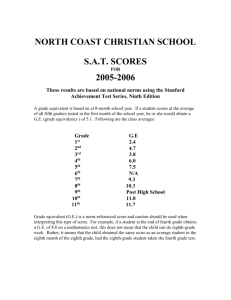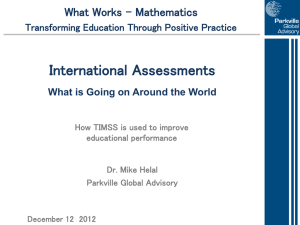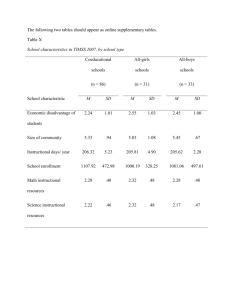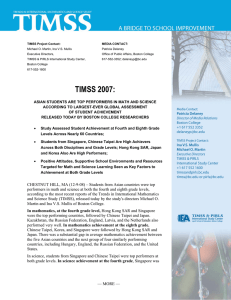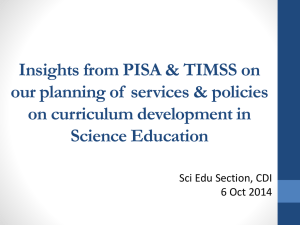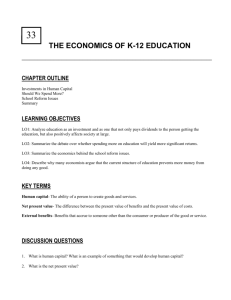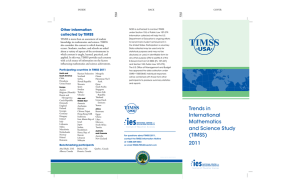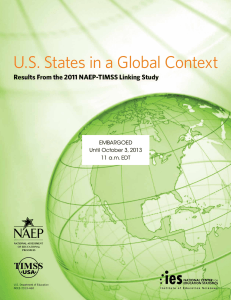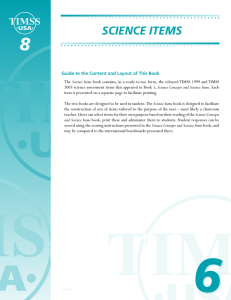For immediate release Dec. 11, 2012
advertisement
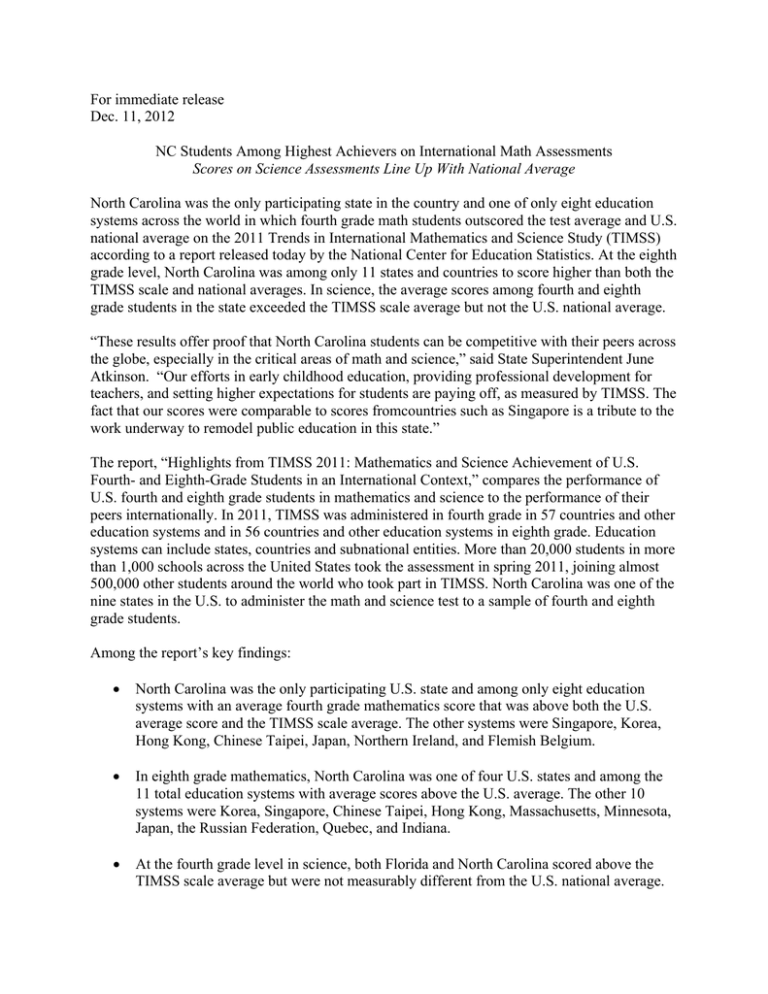
For immediate release Dec. 11, 2012 NC Students Among Highest Achievers on International Math Assessments Scores on Science Assessments Line Up With National Average North Carolina was the only participating state in the country and one of only eight education systems across the world in which fourth grade math students outscored the test average and U.S. national average on the 2011 Trends in International Mathematics and Science Study (TIMSS) according to a report released today by the National Center for Education Statistics. At the eighth grade level, North Carolina was among only 11 states and countries to score higher than both the TIMSS scale and national averages. In science, the average scores among fourth and eighth grade students in the state exceeded the TIMSS scale average but not the U.S. national average. “These results offer proof that North Carolina students can be competitive with their peers across the globe, especially in the critical areas of math and science,” said State Superintendent June Atkinson. “Our efforts in early childhood education, providing professional development for teachers, and setting higher expectations for students are paying off, as measured by TIMSS. The fact that our scores were comparable to scores fromcountries such as Singapore is a tribute to the work underway to remodel public education in this state.” The report, “Highlights from TIMSS 2011: Mathematics and Science Achievement of U.S. Fourth- and Eighth-Grade Students in an International Context,” compares the performance of U.S. fourth and eighth grade students in mathematics and science to the performance of their peers internationally. In 2011, TIMSS was administered in fourth grade in 57 countries and other education systems and in 56 countries and other education systems in eighth grade. Education systems can include states, countries and subnational entities. More than 20,000 students in more than 1,000 schools across the United States took the assessment in spring 2011, joining almost 500,000 other students around the world who took part in TIMSS. North Carolina was one of the nine states in the U.S. to administer the math and science test to a sample of fourth and eighth grade students. Among the report’s key findings: • North Carolina was the only participating U.S. state and among only eight education systems with an average fourth grade mathematics score that was above both the U.S. average score and the TIMSS scale average. The other systems were Singapore, Korea, Hong Kong, Chinese Taipei, Japan, Northern Ireland, and Flemish Belgium. • In eighth grade mathematics, North Carolina was one of four U.S. states and among the 11 total education systems with average scores above the U.S. average. The other 10 systems were Korea, Singapore, Chinese Taipei, Hong Kong, Massachusetts, Minnesota, Japan, the Russian Federation, Quebec, and Indiana. • At the fourth grade level in science, both Florida and North Carolina scored above the TIMSS scale average but were not measurably different from the U.S. national average. The only six education systems with average science scores above the U.S. score were Korea, Singapore, Finland, Japan, the Russian Federation, and Chinese Taipei. • At the eighth grade level, Indiana, North Carolina, Connecticut and Florida scored above the TIMSS scale average but scores were not measurably different from the U.S. national average. Colorado, Massachusetts, and Minnesota were among the 12 education systems with average science scores above the United States average. The others were: Singapore, Chinese Taipei, Korea, Japan, Finland, Alberta, Slovenia, the Russian Federation, and Hong Kong. The Trends in International Mathematics and Science Study is an international comparative study of student achievement. The 2011 assessment represents the fifth such study since TIMSS was first conducted in 1995. North Carolina has not participated, as a state, in the assessment since 1999. TIMSS assesses the mathematics and science knowledge and skills of fourth and eighth graders, and is designed to align broadly with mathematics and science curricula in the participating education systems. The National Center for Education Statistics, located within the Institute of Education Sciences in the U.S. Department of Education, is the primary federal entity for collecting and analyzing data related to education in the United States. For more information on TIMSS, please visit http://nces.ed.gov/timss/. ###
